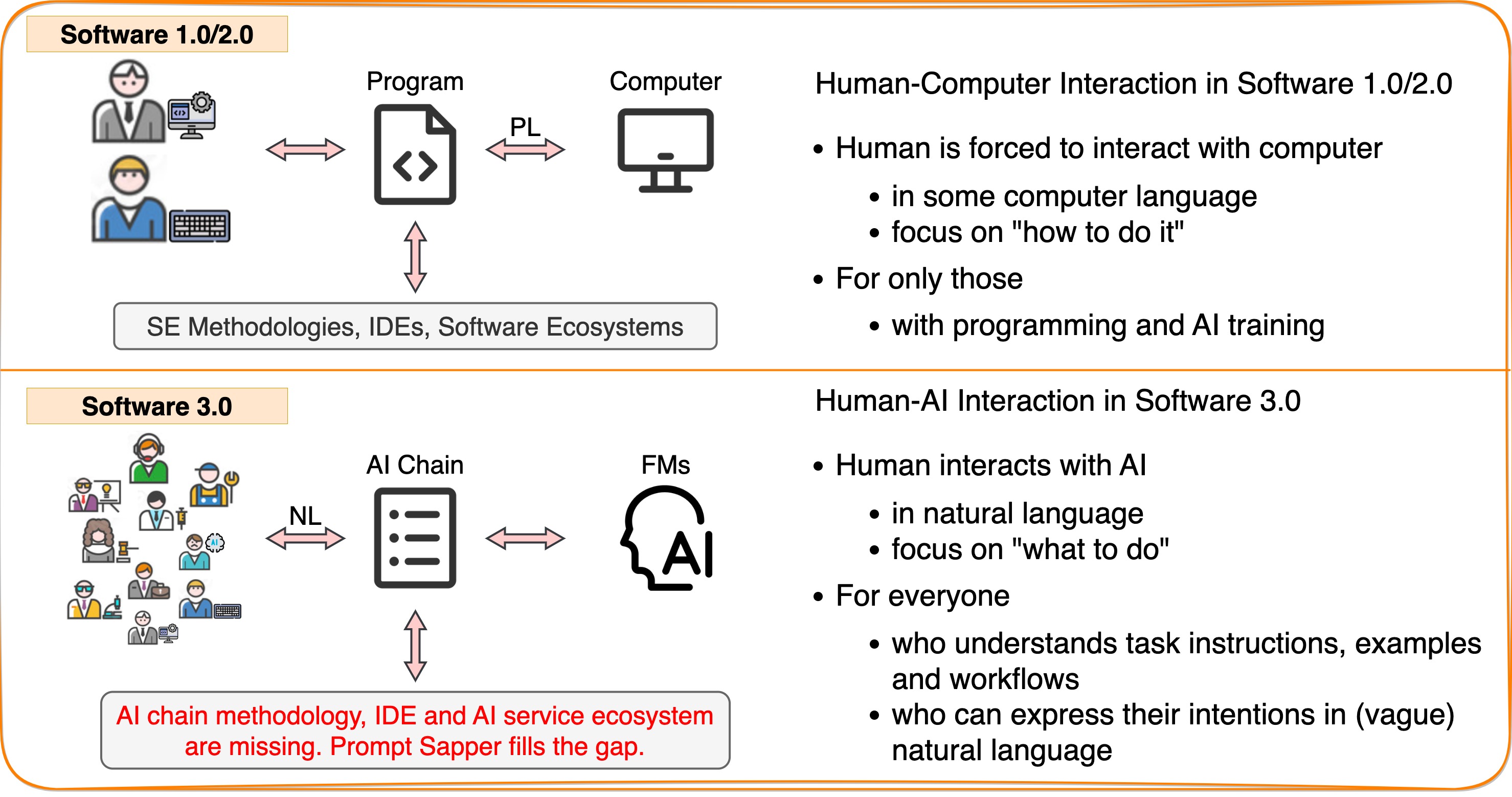AI 2.0 and Software 3.0
AI platformization - the transformative impact on software landscape

Foundation models (FMs) (AI 2.0) unlock Software 3.0
Programming is essentially the means of humans communicating with computers. Previously, we have to adapt to the computer and interact with it using programming languages that the computer can understand, even though natural language is the most intuitive way to express our intentions.
The advent of large language models is chaning the way we can interact and communiate with the computers. Now, we can write a natural language prompt with instructions and examples, and the model will understand this natural language "program", and then get the task done. Prompt programming frees people from traditional programming and AI training. This allows (non-technical) individuals to create complex and specialized AI services by chaining prompt-based AI functionalities on top of foundation models, which we can AI chains (see AI chain examples from the literature and explore our AI chain showcases).
Compositional AI is no new concept, but AI chain is a new capability unlocked by foundation models that provide a flexible and versatile basis for composing new AI systems, where people can focus on "what to do", i.e., analyzing task workflow and data characteristics, and designing human-AI interaction through natural language, rather than focusing on "how to do", i.e., data structures, algorithms, API calls, data labeling, and model training. Read more in why is it significant? and is AI chain a flash in the pan?